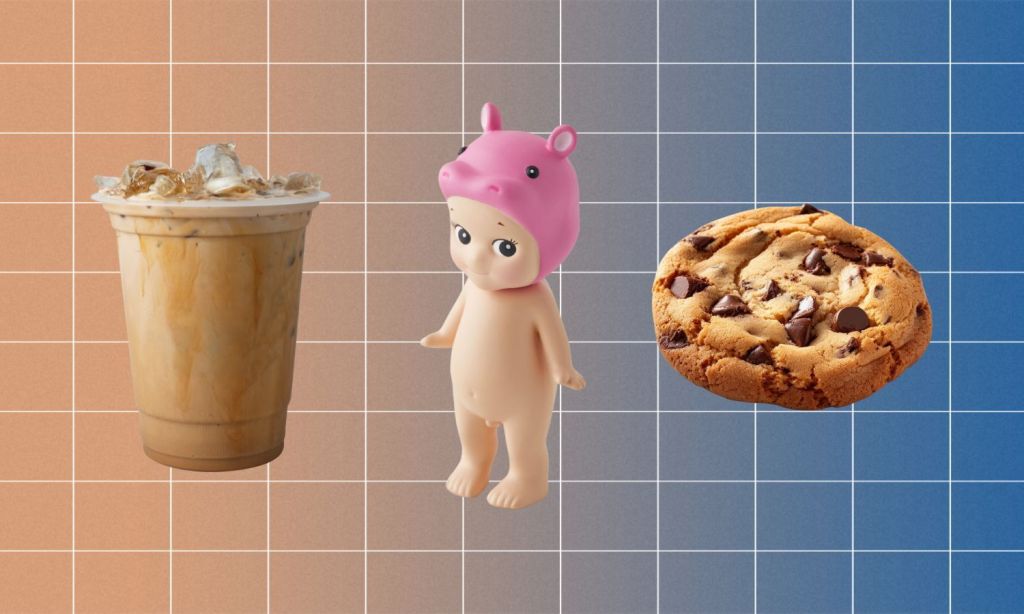The idea of rewarding yourself with a treat after doing something not-so-fun isn’t new; like only being able to eat dessert after finishing all your veggies, or eating healthy all week so you can go ham at bottomless brunch on Sunday.
But thanks to an increasingly stressful cost-of-living crisis and the fact that we’re living through one unprecedented event after another, you’ve no doubt noticed that ‘little treat culture’ is truly having its moment.
little treat culture is getting out of hand. you don’t need an $8 coffee because you did laundry
— carl marks (@lethalrejection) December 16, 2023
Though treat culture encompasses more low-ticket, short-term ‘rewards’, it’s safe to say that it is just another subset of self-care.
The concept of ‘self-care’ has morphed and developed over the years to become more of a catch-all phrase rather than something that can be properly defined. I’d argue that it really became an integral part of our lives in late 2016 and again in 2020 — for obvious reasons.
One definition of self-care that really sticks with me is from Caio Bersot, editor with Ran-it.ca, a product review site: “I define self-care as part of the things I want, not the things I need.”
Then, of course, capitalism and corporate greed got their grubby little paws on ‘self-care’, transforming the definition to centre around things you can buy: skin care, beauty treatments, candles, stationery, books, and even holidays.
Even now, as the cost of living crisis is changing the way we spend on travel, groceries, eating out, and entertainment, we’re still looking to splurge on little ways to take care of ourselves.
And that’s how we’ve arrived to treat culture.
Guys I tried not buying the little treat and saving money and it was not worth it
— Katie D (@KatieDeal99) July 19, 2024
Perhaps it’s now difficult to justify spending $68 on a trendy face mask or keep up a membership at a bougie yoga studio. But it’s pretty easy to convince ourselves that an iced coffee after a gym session or a 3pm Monday arvo cookie is a justifiable expense.
Psychologist Dr Catriona Davis-McCabe, the President of the Australian Psychological Society told me that self-rewarding behaviours — or little treats — can support our well-being and personal growth.
“Giving ourselves a treat can often provide immediate emotional gratification, reinforce positive actions, motivate us to strive for our goals, reduce stress and negative emotions and even enhance our self-esteem by validating our efforts and achievements,” she says.
However, the key is to make sure we’re using these treats as a motivation and reward, and not as a sole coping mechanism to deal with shitty things that come our way.
While the idea of a ‘little treat’ might be a trendy term that’s picked up steam in the last year, the concept behind it is not.
Maybe you’ve heard of the lipstick index. Coined in the early 2000s by an Estee Lauder chairman, it refers to the increased sales of cosmetic items during an economic downturn. Not ten years later, in the wake of the 2008 recession, sales of nail polish grew by 21 per cent in just six months.
When times are tough, when we want to treat ourselves but can’t justify huge purchases, we tend to turn to small, affordable luxuries to keep us going. We’ve just moved on from cosmetics to little treats. It’s like retail therapy… but in a small and controlled dose that won’t leave your bank account in the red.
As Dr McCabe puts it: “The current state of uncertainty globally and the cost-of-living crisis has put many people under pressure, causing undue stress. In response, people may have turned to treats to seek comfort, pleasure, and emotional relief.”
Though the viral posts about little treats tend to centre around iced coffees or fancy pastries, they’re not always edible.
Depending on your algorithm, if you’re on TikTok you’ve probably seen someone purchasing and eagerly unwrapping a Sonny Doll. The tiny plastic cherub dolls, wearing headgear ranging from a clove of garlic to a stack of pancakes are sold in ‘blind boxes’, so purchasers don’t know which figurine they’ll get until they’ve already bought it.
Sales of the $20 dolls have spiked in the past year, thanks to a combo of TikTok virality, their popularity with stars like Bella Hadid, and the rise of treat culture. One store in NYC sells 500 to 1,000 Sonny Angels per week.
@itsjakeflemm sonny angel obession getting stronger #sonnyangel #sonnyangelunboxing ♬ original sound – Jake Fleming
Why? It’s right there in the Sonny Angel slogan: “He may bring you happiness.”
Writer Delia Curtis has amassed a collection of 90 in the space of four months. As she puts it, “Everything feels like it’s in shambles, with destruction, violence and disease plastered all across social media. Sonny is a big warm hug amongst it all, comforting me in a tangible way.”
We’re all just looking for a temporary rush of serotonin. A quarter century ago, that came from lipsticks. Now, collectible tchotchkes are all the rage. In another twenty years, who knows what else will be around to fill the void?
Read more stories from The Latch and subscribe to our email newsletter.

